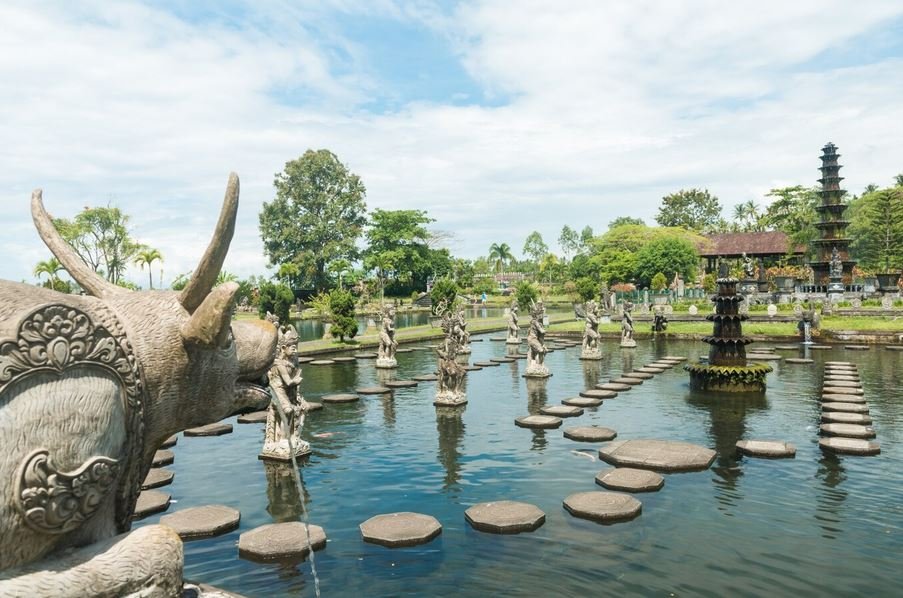The allure of tropical paradise has never been stronger. As remote work becomes the norm and digital nomadism reaches new heights, Bali has emerged as the crown jewel of island destinations for those seeking a radical lifestyle change. With its emerald rice terraces, ancient temples, vibrant culture, and thriving expat community, the “Island of the Gods” seems to offer everything one could desire. But beneath the Instagram-worthy sunsets and affordable massages lies a complex reality that every potential resident should carefully consider.
🌅 The Irresistible Appeal: Why Bali Captivates Hearts
Cost of Living Paradise
One of Bali’s most compelling advantages is its remarkably low cost of living compared to Western standards. A decent meal at a local warung can cost as little as $2-3, while a comfortable villa with a pool might rent for $800-1200 per month in areas like Canggu or Ubud. Domestic help, spa treatments, and transportation are all fraction of what you’d pay in major Western cities. This economic advantage allows many expatriates to enjoy a lifestyle that would be financially impossible in their home countries.
Year-Round Tropical Climate
Bali’s consistent warm weather eliminates the seasonal depression and wardrobe complications that plague many temperate climates. With temperatures hovering between 75-85°F (24-29°C) year-round, you can maintain an active outdoor lifestyle regardless of the month. The predictable wet and dry seasons provide variety without the extremes of harsh winters or scorching summers.
Rich Cultural Tapestry
The Balinese Hindu culture creates a unique spiritual atmosphere that permeates daily life. From the morning offerings placed outside homes and businesses to the frequent temple festivals with their elaborate processions, living in Bali means being immersed in a culture that prioritizes harmony, spirituality, and community. This cultural richness offers personal growth opportunities and a perspective shift that many Western expatriates find profoundly meaningful.
Thriving Digital Nomad Community
Bali has evolved into a global hub for remote workers, entrepreneurs, and digital nomads. Co-working spaces like Hubud in Ubud and Dojo Bali in Canggu provide professional environments and networking opportunities. The expat community organizes regular meetups, skill-sharing sessions, and social events, making it relatively easy to build both professional and personal networks.
Adventure and Natural Beauty
From world-class surfing breaks to volcano hikes, rice terrace cycling tours to hidden waterfall expeditions, Bali offers endless opportunities for adventure. The island’s compact size means you can surf at dawn, explore a temple by midday, and watch the sunset from a mountain peak—all in a single day. This accessibility to diverse experiences keeps life exciting and prevents the stagnation that can occur in more monotonous environments.
⚠️ The Hidden Challenges: What Paradise Doesn’t Show You
Infrastructure Frustrations
Bali’s rapid development hasn’t kept pace with infrastructure needs, leading to significant daily frustrations. Traffic congestion in popular areas like Seminyak and Canggu can turn a 10-minute journey into an hour-long ordeal. Power outages are frequent, particularly during the rainy season, which can disrupt work and daily routines. Internet connectivity, while generally available, can be unreliable, posing challenges for those dependent on stable connections for their livelihood.
Visa Complications and Legal Uncertainties
Indonesia’s visa regulations for long-term residents are complex and constantly evolving. The popular B211 visa requires monthly extensions and border runs, creating ongoing administrative burdens and uncertainty. Property ownership laws restrict foreigners, forcing creative (and sometimes legally ambiguous) workarounds. Recent crackdowns on visa violations have created anxiety within the expat community about long-term stability.
Cultural Barriers and Integration Challenges
While Balinese people are generally welcoming, true cultural integration requires significant effort and sensitivity. Language barriers can create isolation, particularly outside tourist areas. Some expatriates struggle with the indirect communication style common in Indonesian culture, leading to misunderstandings in both personal and professional relationships. The concept of “rubber time” and different approaches to punctuality and commitments can frustrate those accustomed to more rigid Western business practices.
Healthcare Limitations
While Bali has improved its healthcare infrastructure, serious medical emergencies often require evacuation to Singapore or Australia, making comprehensive health insurance essential and expensive. The quality of medical care varies dramatically between international hospitals in tourist areas and local facilities. Dental care, specialist treatments, and certain medications may not meet Western standards or availability.
Environmental and Social Concerns
Bali faces serious environmental challenges, including plastic pollution, water scarcity, and overdevelopment. The dry season brings haze from forest fires, while the wet season can cause flooding and increased disease risk. Traffic pollution in busy areas affects air quality, and proper waste management remains inconsistent. These issues raise questions about the island’s long-term sustainability and livability.
💰 Financial Realities: Beyond the Low Cost of Living
The Expat Tax
While basic costs are low, maintaining Western standards often comes with an “expat tax.” International schools, imported foods, reliable internet, generator backup power, and quality housing in desirable areas can quickly escalate monthly expenses to $2000-4000 or more. Many expatriates find themselves spending more than anticipated to maintain comfort and connectivity.
Currency Fluctuations and Banking
The Indonesian Rupiah’s volatility can significantly impact budgets, particularly for those earning in foreign currencies. International banking can be complicated, with restrictions on foreign account holdings and challenges transferring money in and out of Indonesia. Some expatriates maintain offshore accounts, adding complexity to financial management.
Limited Investment Opportunities
Indonesia’s restrictions on foreign investment limit wealth-building opportunities for long-term residents. Property investment is complicated by ownership laws, and local business opportunities often require Indonesian partnerships with inherent risks.
🏡 Lifestyle Considerations: The Daily Reality
Social Dynamics and Relationships
The expatriate community in Bali can be both a blessing and a limitation. While providing immediate social connections, it can also create an echo chamber that prevents deeper cultural integration. Relationships within the expat community can be transient, as many residents are in constant flux. Dating can be complicated by the temporary nature of many residents and cultural differences with locals.
Professional Development
While Bali offers lifestyle benefits, career advancement opportunities may be limited compared to major urban centers. Industries like finance, law, and corporate management have minimal presence, potentially stalling professional growth for those in these fields. The time zone differences can also complicate business relationships with Western partners and clients.
Family Considerations
Families with children face additional challenges, including limited international school options, concerns about educational standards, and restricted extracurricular activities. Healthcare for children requires careful consideration, and the tropical environment brings unique health risks like dengue fever and parasitic infections.
🌟 Making the Decision: Is Bali Right for You?
Ideal Candidates for Bali Living
Bali tends to work best for individuals who are:
- Financially independent or working in location-independent careers
- Adaptable and patient with infrastructure challenges
- Interested in personal growth and cultural exploration
- Comfortable with uncertainty and changing circumstances
- Seeking a slower, more mindful lifestyle
- Single or in relationships without immediate family planning needs
Red Flags: When Bali Might Not Work
Consider alternatives if you:
- Require advanced healthcare access
- Have strict professional advancement timelines
- Need consistent, high-speed internet for your livelihood
- Are inflexible about Western conveniences and standards
- Struggle with heat and humidity
- Require clear legal frameworks for business or property
- Have school-age children requiring Western-standard education
🚀 Preparing for the Transition
Research and Planning Phase
Before making the move, spend extended time in Bali during both wet and dry seasons to experience the full range of conditions. Research visa options thoroughly and consult with immigration lawyers if planning long-term residence. Establish relationships with reliable internet providers, healthcare facilities, and service providers before fully committing.
Financial Preparation
Maintain substantial emergency funds in accessible accounts, as unexpected costs for visa issues, medical emergencies, or infrastructure problems can arise quickly. Consider the impact of currency fluctuations on your budget and plan accordingly. Investigate international health insurance options that provide coverage both in Indonesia and for medical evacuations.
Cultural Preparation
Begin learning Indonesian (Bahasa Indonesia) before arriving, as this significantly improves daily life and cultural integration. Study Balinese customs and Hindu practices to show respect and avoid cultural missteps. Connect with existing expatriate communities online to gather practical advice and realistic expectations.
🎯 The Verdict: Paradise with Parameters
Moving to Bali represents a significant lifestyle trade-off rather than a simple upgrade. The island offers genuine benefits including low costs, natural beauty, cultural richness, and a supportive expatriate community. However, these advantages come with real costs in terms of infrastructure reliability, legal complexity, professional limitations, and lifestyle adjustments.
Success in Bali often depends more on mindset and adaptability than on external circumstances. Those who approach the move with realistic expectations, cultural sensitivity, and flexibility tend to thrive. Those seeking a perfect paradise or expecting Western standards with tropical weather often face disappointment.
The key is honest self-assessment about your priorities, flexibility, and long-term goals. Bali can offer a transformative, enriching lifestyle for the right person at the right time. For others, it may serve better as an extended vacation destination rather than a permanent home.
Ultimately, the decision to move to Bali should be based on a careful weighing of personal priorities rather than social media imagery. The island’s magic is real, but it comes with practical realities that require serious consideration. Those who make the transition with open eyes and realistic expectations often find that while Bali may not be perfect paradise, it can indeed be a perfect fit for their particular life circumstances and goals.
Whether you’re dreaming of morning surf sessions and afternoon temple visits or concerned about visa runs and internet outages, the decision to relocate to Bali deserves careful consideration of both the remarkable opportunities and genuine challenges that island life presents.










Join The Discussion